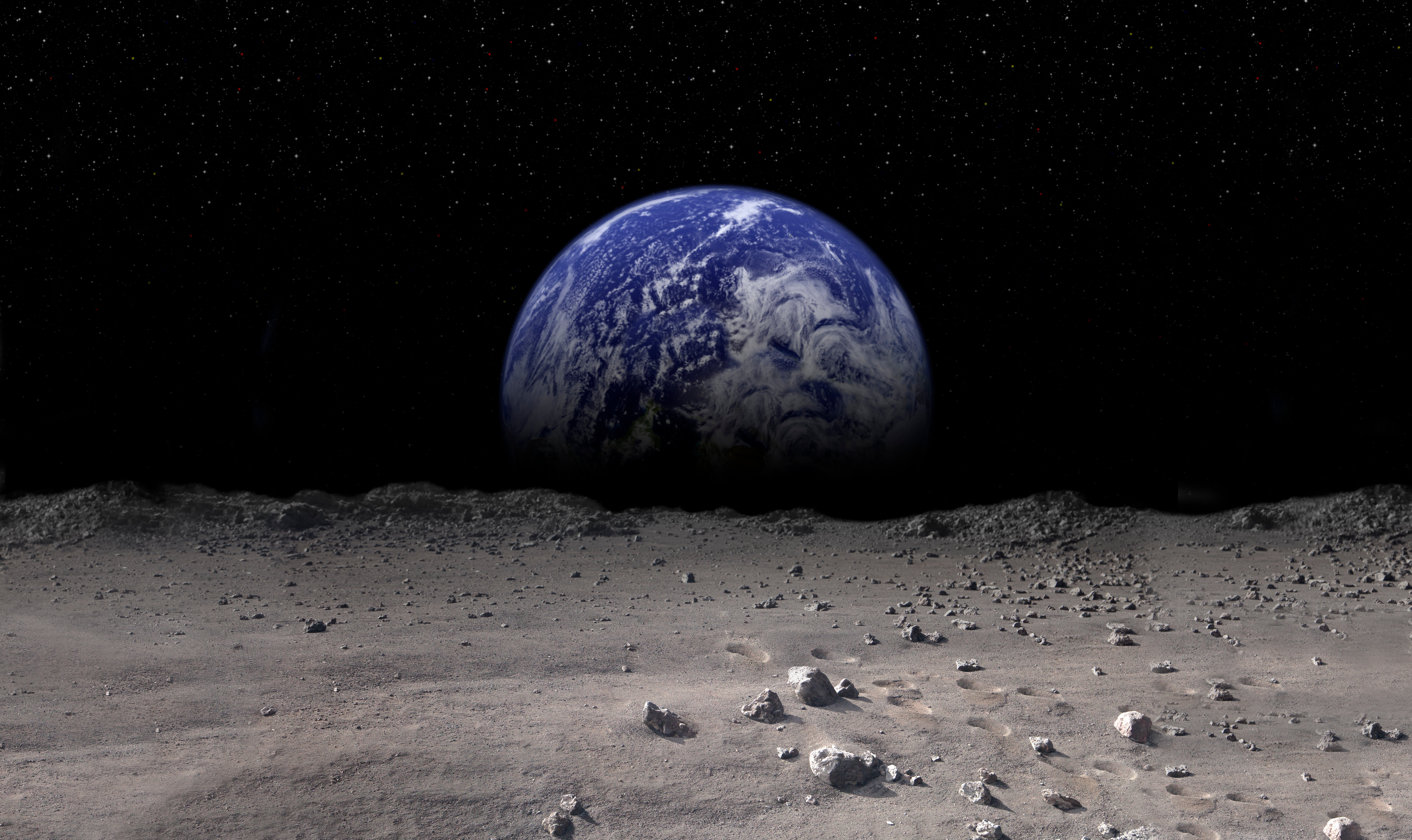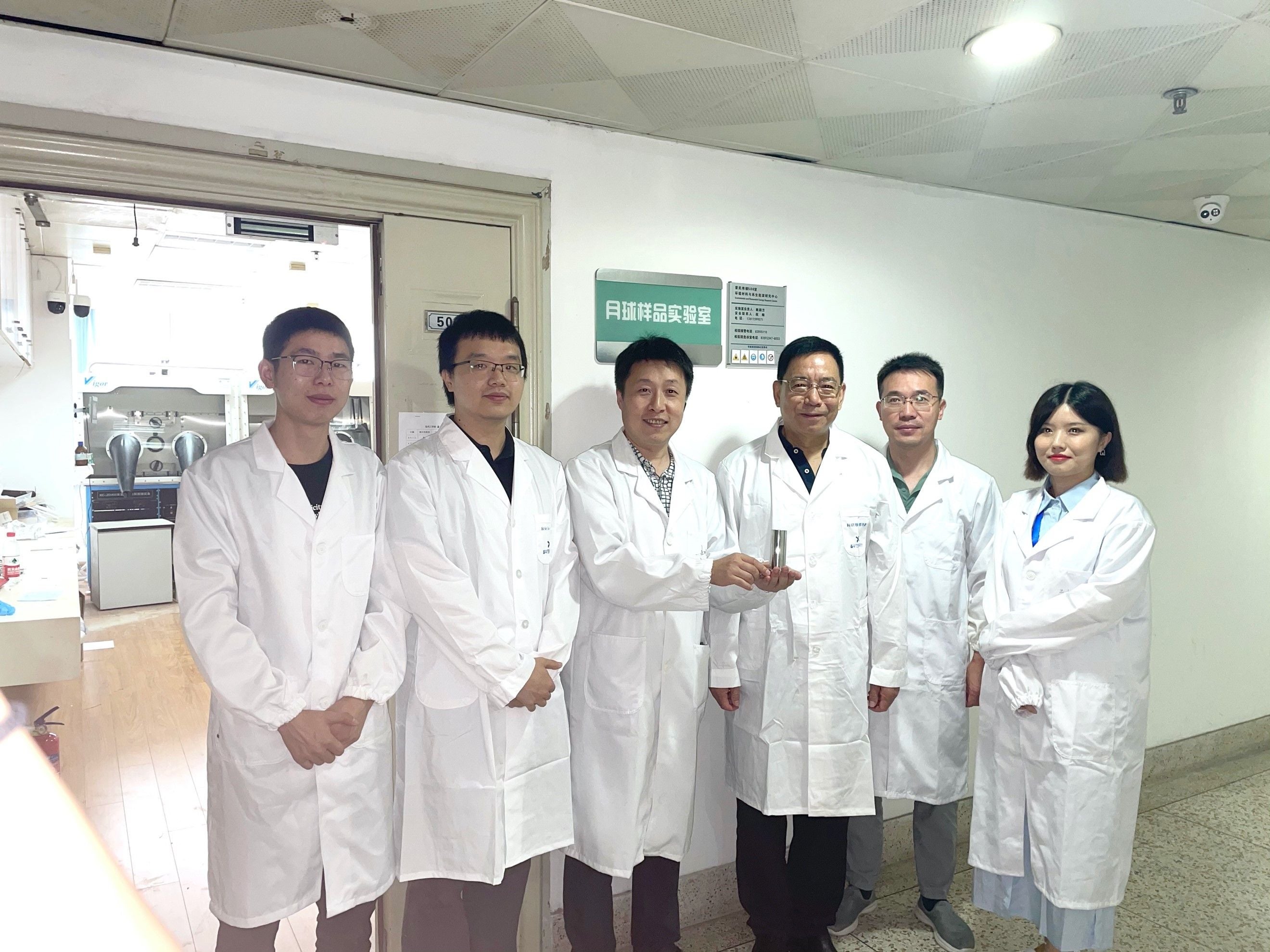Moon soil can turn carbon dioxide into oxygen and could support life in space, study finds
Scientists explore new possibility of supporting human life in space

Your support helps us to tell the story
From reproductive rights to climate change to Big Tech, The Independent is on the ground when the story is developing. Whether it's investigating the financials of Elon Musk's pro-Trump PAC or producing our latest documentary, 'The A Word', which shines a light on the American women fighting for reproductive rights, we know how important it is to parse out the facts from the messaging.
At such a critical moment in US history, we need reporters on the ground. Your donation allows us to keep sending journalists to speak to both sides of the story.
The Independent is trusted by Americans across the entire political spectrum. And unlike many other quality news outlets, we choose not to lock Americans out of our reporting and analysis with paywalls. We believe quality journalism should be available to everyone, paid for by those who can afford it.
Your support makes all the difference.Moon soil can convert carbon dioxide into oxygen, raising the possibility that it could be used to support human life in space, a study has found.
The report published in the scientific journal Joule found that moon soil contains active compounds that could be used, along with sunlight and carbon dioxide, to produce water, oxygen and fuel to support life on a moonbase and enable further exploration of space.
“Our strategy provides a scenario for a sustainable and affordable extraterrestrial living environment,” Yingfang Yao, a material scientist from Nanjing University in China and lead author of the report.
“If we want to carry out large-scale exploration of the extraterrestrial world, we will need to think of ways to reduce payload, meaning relying on as little supplies from Earth as possible and using extraterrestrial resources instead.”

Previously, scientists have proposed strategies for extraterrestrial survival but most require energy sources from Earth. For example, though Nasa’s Perseverance Mars rover carried an instrument that can use carbon dioxide in the planet’s atmosphere to make oxygen, the vehicle was powered by a nuclear battery.
This time, however, Dr Yao and his colleagues hope to take advantage of the two most abundant resources on the moon: solar radiation and soil, minimising what needs to be transported into space.
The team of scientists analysed moon soil brought back by China’s Chang’E-5 spacecraft and found that it contained iron- and titanium-rich substances. Now, they hope to design an “extraterrestrial photosynthesis” system that will use moon soil to electrolyze water.
The carbon dioxide exhaled by astronauts will also be collected and combined with hydrogen from the water electrolysis. The process will yield hydrocarbons such as methane, which could be used as fuel, according to the scientists, helping sustain human life on the moon in a cost-efficient way.
The team hopes to test the system in space on future lunar missions by China.
“In light of significant effort conducted to manned deep space exploration, it is of high technological importance and scientific interest to develop the lunar life support system for long-term exploration,” the authors of the report said in its summary. “Lunar in situsource utilization offers a great opportunity to provide the material basis of life support for lunar habitation and traveling.”
Join our commenting forum
Join thought-provoking conversations, follow other Independent readers and see their replies
Comments